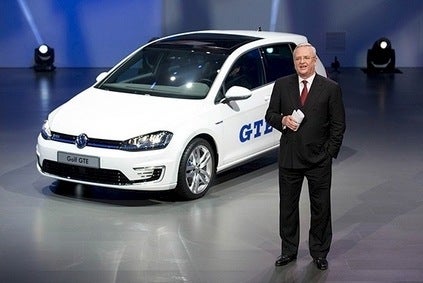The focus in Beijing’s auto show this year is firmly on green technologies. That’s perhaps not too surprising when you bear in mind the problems that China is experiencing with air quality in its major cities. Heavy industry and the burning of fossil fuels for power generation have played a big part in the emerging problem, but the surge in numbers of vehicles on the road has played a role, too.
The view from the top in China seems clear. China’s premier, Li Keqiang, declared ‘war’ on smog in a speech last month. Power generation will shift away from coal-fired and towards nuclear, as part of the move to rebalance the country’s economy and avoid further environmental harm of the type that is all too visible from Beijing hotel windows.
The auto industry will also be looked at with more encouragement and incentives for ‘new energy’ vehicles. Thus far, the industry, overall, has gone hell for leather for growth at all cost. And that has basically meant providing buyers with what they want: the same kinds of conventionally engined products that the rest of the world loves, too. Arguably, China had a chance to leap-frog conventional automotive technology ten years ago ahead of the surge in demand that was expected. The burgeoning domestic market could have delivered the volume needed to help new technology become established and globally competitive before locals got the taste for the more familiar globally incumbent ICE technology. It didn’t seize that chance, preferring to go down the traditional auto tech path, boosted by FDI from global OEMs only too pleased to oblige.
China’s policymakers in Beijing don’t have the best of track records when it comes to directing the auto industry; the regional power bases have proven too strong to be controlled (talk of the need to consolidate a fragmented industry has remained just that, talk). The regional automotive powers have been only too pleased to boost their local champions and encourage easy volume growth, grow the local economy, while paying little attention to central government policy objectives.
However, the severity of the environmental problems now being experienced in China may create a sea-change in attitudes in the regions, too. There is widespread concern that the problem of air quality has become as serious as it has. Politicians are concerned. The premier has responded with tough words. We’ll see if the regions are listening and prepared to act.
But a new greener wave of automotive industry investment could be coming in China and some automakers are clearly gearing up for the cleaner times ahead. Volkswagen Group is using the Beijing Show to emphasise its investments in electrified vehicles for China. If China really embraces PHEVs in a big way, that will also help to boost the technology elsewhere. That ‘missed opportunity’ may not have been completely missed.







